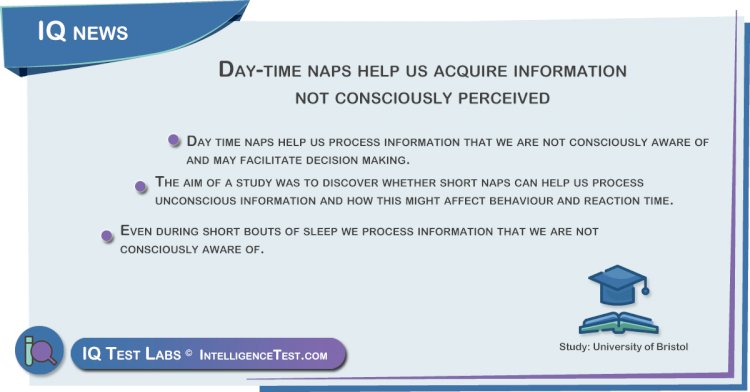Day-time naps help us acquire information not consciously perceived
Day time naps help us process information that we are not consciously aware of and may facilitate decision making.

Main titles
- The aim of a study was to discover whether short naps can help us process unconscious information and how this might affect behaviour and reaction time.
- Even during short bouts of sleep we process information that we are not consciously aware of.
- Previous evidence demonstrates that sleep helps problem solving, resulting in enhanced cognition upon awaking.
- In this study, researchers hid information by presenting it very briefly and "masking" it so it was never consciously perceived.
- The hidden information, however, was processed at a subliminal level within the brain and the extent to which it interferes with responses to consciously perceived information was measured.
- Sleep (but not wake) improved processing speed in the masked prime task – but not in the control task – suggesting sleep-specific improvements in processing of subconsciously presented primes.
"The findings are remarkable in that they can occur in the absence of initial intentional, conscious awareness, by processing of implicitly presented cues beneath participants' conscious awareness. Further research in a larger sample size is needed to compare if and how the findings differ between ages, and investigation of underlying neural mechanisms." - Dr Liz Coulthard, Consultant Senior Lecturer in Dementia Neurology at the University of Bristol Medical School: Translational Health Sciences.
Study: bristol.ac.uk














